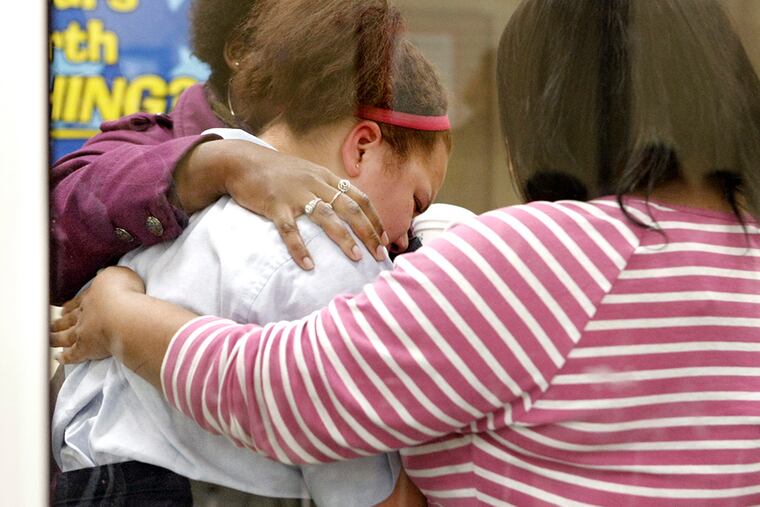Wakisha Charter School votes to close next month
Less than three weeks after the Walter Palmer charter school abruptly closed its high school, another Philadelphia charter said it was shuttering because it was on the brink of financial collapse.

Less than three weeks after the Walter Palmer charter school abruptly closed its high school, another Philadelphia charter said it was shuttering because it was on the brink of financial collapse.
At a meeting that drew dozens of angry and sobbing parents, staff, and students, the board of Wakisha Charter School in North Philadelphia voted Thursday night to close Dec 23.
The move affects 261 sixth, seventh, and eighth graders who attend the charter at 800 W. Jefferson St.
"Unfortunately, because we don't have enough students, we cannot meet our financial obligations," board chairman Miguel Pulido said before the board voted to close the school right before the holidays. He did not elaborate on the scope of the financial problems.
A representative from the school district's charter office pledged to help parents find new schools.
Lauren Thum, an accountability specialist in the charter office, said information would be available for parents early next week to explain the transfer process and describe the options available for their children.
Wakisha, an under-enrolled school that opened in 2000 and featured an African-centric curriculum, has been struggling financially - and academically - for years. The district had been reviewing Wakisha's operations to determine whether it should be granted a new five-year charter.
Parents and staff lambasted the board for failing to communicate the charter's problems and for opening the school in the fall.
Vice chairman Bob Borzotta said the board had thought the charter would be able to survive this academic year but was wrong.
"We just don't have enough money left," Pulido said.
Teachers and parents expressed special concern for the eighth graders who will have to find schools to finish out the year at the same time they're researching high schools.
"This is a calamity," said Steven Wilson, who has taught at the school for six years. "Wakisha is like a little family."
For most of the hour-long public session, Wakisha board members sat impassively, said little, and declined to answer questions from the audience.
"What support are you providing for our students tomorrow?" English teacher Antoinette Davis asked tearfully. "So our kids are coming in here already in an attitude that, 'Oh, my God, these are my last days here.' "
The board said the principal would hold a meeting for students next week.
It is only the second time a Philadelphia charter has ceased operations and displaced all its students after the academic year had begun.
Palmer's K-8 classes are continuing to operate.
But the Center for Economics and Law shut its building in Southwest Philadelphia in June 2003, a few weeks before the end of the academic year.